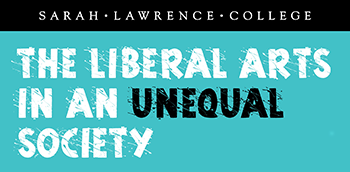Event Title
Keynote Address: Practicing the Humanities in the Face of Injustice: Lessons from Benjamin, Marx, and Ishiguro
Location
Donnelley Theatre, Heimbold Visual Arts Center
Start Date
14-11-2014 4:30 PM
End Date
14-11-2014 5:15 PM
Abstract
Current debates about the liberal arts center on two different accounts of their value. An “extrinsic” approach holds that humanities education is a means to an external end–that, for example, it enhances US economic competitiveness, advances the national interest in the realm of geopolitics and/or promotes internal social cohesion. An “intrinsic” model holds that the liberal arts are valuable in their own right–that they cultivate, in the individual, intellectual and spiritual depth, richness of imagination, and moral capacity. In this lecture, I offer some criticisms of both of these views and then proceed to develop a third alternative, which draws on some ideas of Walter Benjamin, John Rawls, and the young Karl Marx. To illustrate my approach, I offer a reading of Kazuo Ishiguro’s 2005 novel, Never Let Me Go. In my reading, the book is a profound reflection on the very same nexus of beauty and barbarism, humanity and inhumanity that I identify as the core of the liberal arts.
Presenter Biography
Nancy Fraser is the Henry A. and Louise Loeb Professor of Philosophy and Politics at the New School for Social Research in New York. An Einstein Fellow at the John F. Kennedy Institute, Free University of Berlin, she also holds the Chair in Global Justice at the Collège d’études mondiales, Paris. Professor Fraser is a leading international critical and feminist theorist who has brought the grand tradition of Hegel, Marx, Habermas and Foucault into the 21st century by rearticulating the intersection of empirically informed social theory and normative philosophy. Her broad ranging work is underpinned and interconnected by interests in the emancipatory potential and power dynamics of democratic public spheres, the grammars of different kinds of claims making within democratic politics, including claims for redistribution, recognition and representation. Fraser had done highly original and influential work on the ways in which these kinds of claims are rearticulated as they vie for inclusion and institutionalization among the organized interests catered to within modern administrative state structures, and the kinds of power and modalities of intervention at work at each of the three levels of politics she focuses on. Across these different themes and levels, Fraser seeks to vindicate a principle of participatory parity that at once casts clear light on the manifold forms of exclusion and marginalization at work in late modern social worlds but also on the nature of the basic demand of democratic justice, for full inclusion and participation of those most affected in shaping the structures and practices that determine life chances and social fates. Her many publications include Fortunes of Feminism: From State-Managed Capitalism to Neoliberal Crisis (2013), Scales of Justice: Reimagining Political Space in a Globalizing World (2008), Redistribution or Recognition? A Political-Philosophical Exchange (2003), co-authored with Axel Honneth, Justice Interruptus: Critical Reflections on the "Postsocialist" Condition, Feminist Contentions: A Philosophical Exchange (1994), co-authored with Seyla Benhabib, Judith Butler, and Drucilla Cornell, and Unruly Practices: Power, Discourse and Gender in Contemporary Social Theory (1989). Most recently Fraser’s scholarship has focused on issues of political economy and crisis theory, as reflected in her forthcoming book, Crisis, Critique, Capitalism: A Critical Theory for the 21st Century.
Keynote Address: Practicing the Humanities in the Face of Injustice: Lessons from Benjamin, Marx, and Ishiguro
Donnelley Theatre, Heimbold Visual Arts Center
Current debates about the liberal arts center on two different accounts of their value. An “extrinsic” approach holds that humanities education is a means to an external end–that, for example, it enhances US economic competitiveness, advances the national interest in the realm of geopolitics and/or promotes internal social cohesion. An “intrinsic” model holds that the liberal arts are valuable in their own right–that they cultivate, in the individual, intellectual and spiritual depth, richness of imagination, and moral capacity. In this lecture, I offer some criticisms of both of these views and then proceed to develop a third alternative, which draws on some ideas of Walter Benjamin, John Rawls, and the young Karl Marx. To illustrate my approach, I offer a reading of Kazuo Ishiguro’s 2005 novel, Never Let Me Go. In my reading, the book is a profound reflection on the very same nexus of beauty and barbarism, humanity and inhumanity that I identify as the core of the liberal arts.


